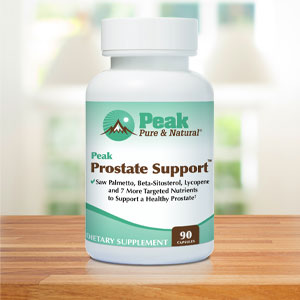You may think your drinking water is treated to make it safe. But the unfortunate truth is there are still a lot of chemicals lurking in a tall, cool glass.
The most shocking might be perchlorate, a chemical found in rocket fuel (yes, you read that right!), fireworks, flares and matches.
The Environmental Protection Agency (EPA) has yet to set a limit on perchlorate levels in water even though anyone with common sense might think any rocket fuel — at all — is way too much, considering the chemical has been linked to brain damage in infants and children and can damage our thyroids.
As if drinking rocket fuel isn’t bad enough, you and your family may be eating it as well…
Perchlorate in your food
A study from Consumer Reports indicates perchlorate has contaminated our food supply. Scientists analyzed 196 samples of 63 grocery store products and 10 fast food items. About 67 percent of the samples had measurable levels of perchlorate ranging from just over two parts per billion (ppb) to 79 ppb.
When looking at general categories, these had the highest levels of perchlorate:
- Baby/kid food, averaging 19.4 ppb
- Fruits and vegetables, averaging 9.3 ppb
- Fast food, averaging 7.7 ppb
- Baked products and grains, averaging 6.9 ppb
- Dairy, averaging 6.2 ppb
- Meat products, averaging 5.3 ppb
How much ‘rocket fuel’ is safe?
According to Consumer Reports, in 2005, the EPA established an “official reference dose” for perchlorate of 0.7 micrograms per kilogram of body weight per day. This means the EPA considers this to be a safe exposure level.
However, many food experts think this level is too high. The European Food Safety Authority (EFSA) has set a tolerable daily intake of less than half that amount: 0.3 micrograms per kilogram of body weight.
While none of the foods tested had perchlorate levels high enough for one serving to exceed the EFSA or EPA’s suggested daily limits, children may be especially vulnerable because of their lower body weight.
For instance, a serving of the boxed mac and cheese the scientists tested would hit nearly 50 percent of the EFSA limit for perchlorate in a child between 1 and 2 years old. And servings of the baby rice cereal, baby multigrain cereal and organic yogurt tested would each hit about a quarter of the EFSA limit. That means with one serving of each of those foods, a child would exceed the EFSA’s safe daily limit.
And even if you’re feeding your child healthy food, they still may quickly go over the limit. One serving of cucumbers, baby carrots and collard greens would each exceed 50 percent of the EFSA daily limit for children between ages 1 and 2.
Danger to the thyroid
Now for the bad news: there isn’t much you can do to avoid consuming perchlorate through your food. Even eating a healthy diet can put you at risk, since perchlorate is found in fruits and vegetables. You can (and should) wash your fruits and vegetables in filtered water before you consume them, which might at least remove any surface-level contaminants.
Also, it’s best to avoid consuming fast food, mac and cheese and processed chicken products like chicken nuggets, since those all contain high levels of perchlorates and are unhealthy for other reasons. And definitely don’t feed those to your kids.
Consuming unsafe levels of perchlorate can affect the thyroid by interfering with iodide uptake into the thyroid gland. Iodide is the salt form of iodine, a mineral crucial to proper thyroid function. This disrupts thyroid functions and could lead to a reduction in thyroid hormone production. That makes perchlorates endocrine-disrupting chemicals.
“Thyroid hormones affect metabolism, and having bad thyroid function could lead, in this case, to type 2 diabetes,” Dr. James Rogers, director of food safety research and testing at Consumer Reports, told USA Today. Disruption of the thyroid can also affect the development of the central nervous system in fetuses and infants.
While you may not be able to avoid eating rocket fuel, you can help protect your thyroid function by getting enough iodine. You can eat foods rich in iodide like iodized salt, organic yogurt, cranberries, navy beans and sea vegetables like kelp and wakame. Or you can supplement if your iodine levels are dangerously low.
Also, you can help optimize thyroid function and increase thyroid hormone efficiency by combining iodine with the amino acid L-Tyrosine.
There is one bit of good news: the EPA says it will set limits on perchlorate by Nov. 21, 2025, according to Consumer Reports. Hopefully, they will begin to regulate the disposal of this dangerous chemical so those perchlorate levels don’t go any higher. We may be stuck with what of it has already polluted our waters and soil as it is a “forever chemical.”
Sources:
Is your family eating rocket fuel? Consumer Reports study finds chemical in food, water — USA Today
Why Rocket Fuel Has Been Contaminating Our Food and Water for Years — Consumer Reports
Perchlorate in Food — U.S. Food and Drug Administration
Read full article here




